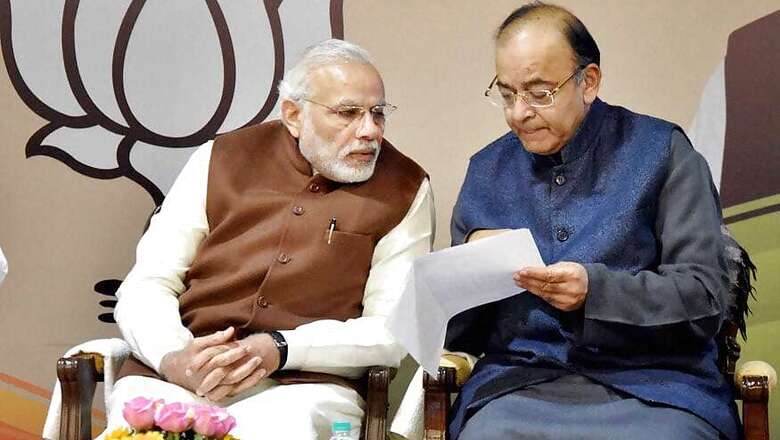
views
Prime Minister Narendra Modi and Finance Minister Arun Jaitley will meet on Tuesday evening for an economic review. There is no doubting the urgency: economic growth has been falling for the last six quarters; exports have been tepid; corporate investments anaemic and private demand malfunctioning. Whether the government will opt to increase spending, the one weapon at their disposal, remains to be seen.
Picture the economy as an airplane (GDP growth) trying to gain altitude. Three of the four engines (private demand, exports, private investments) are currently misfiring and only one engine (government spending) is functioning. Thus the airplane is losing altitude. In order to steady the aircraft, the pilot needs to pull the throttle on the only engine fully under his control (government spending).
However, the actions of the government so far indicate a desire for the opposite: that is to decrease spending.
“There is a serious lack of demand in the economy and the government needs to identify the causes of this and act upon them,” an economist who formerly worked with the government, who wanted to remain anonymous, told News18.
Private Demand: This is the demand generated by households and individuals purchasing goods and services, which acts as a signal to companies to step up manufacturing. Demonetisation and GST have crimped demand. Moreover, demand in rural areas and the agricultural sector is also down on account of farm incomes having declined.
Investment Demand: Corporates borrow from banks and invest in building new factories and plants to cater to private demand. However, because of the massive non-performing assets, banks are scaling back their loans. Moreover, companies themselves are unable to borrow because their balance sheets are not in good shape.
Export Demand: Export growth has been tepid because global demand for goods and services remains weak.
In such a scenario, increasing government spending can counter the contraction of investments and exports. However, consider the steps the union government has taken:
· It has refused to take on any liability for the farm loan waivers undertaken by the states, totaling more than Rs 1 lakh crore.
· The government has reduced the fuel subsidy component by letting petrol/diesel prices be market determined and increasing LPG prices and getting middle class households to ‘give it up’
· Finance Minister Jaitley has consistently stuck to the fiscal roadmap as laid out in the Fiscal Responsibility and Budget Management Act, which mandates reducing the fiscal deficit to 3% and eliminating the revenue deficit altogether.
“My fear is that the Finance Minister feels that the fiscal roadmap needs to be adhered to and he may give the Prime Minister this feedback,” the economist said.
Its possible that the government wants to mend its finances with an eye on the international rating agencies. During the dying days of the UPA, when government finances deteriorated, there was a fear that the rating agencies would downgrade India, affecting incoming investments.
“There is nothing wrong in relaxing the fiscal deficit targets for the next year since the economy is in a downturn right now and the government needs to increase expenditure,” N.R. Bhanumurthy, an economist with the NIPFP told News18. He suggested that recapitalizing banks would be a good example of spending that would have positive effects on the economy.




















Comments
0 comment